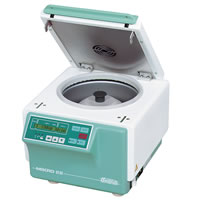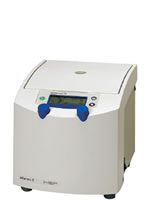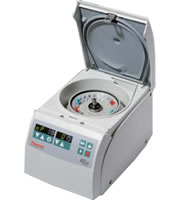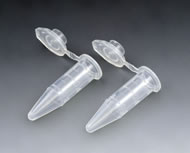Micro Centrifuge
The micro centrifuge is a small bench top centrifuge they offer the user the facility to spin small capacity samples at high speed the sample size is typically 0.2-2ml in volume. Microcentrifuges are ideal for research and are commonly used in universities. Typically a microcentrifge will spin at speeds between 13,000 and 15,000 RPM with a g-force between 16,000 to 20,000 xg. Most commonly occuring applications will require a range between or below these speeds, however there are microcentrifuges capable of higher speeds and g-forces available.




Microcentrifuge Tubes
Tubes are typically small cylindrical plastic containers with conical bottoms usually with an integral snap cap to contain the sample. Used in molecular biology and biochemistry they are particularly useful where applications result in only a small amount of liquid in the tube or when small amounts of other liquids are being added. Microcentrifugation can be used to collect the drops together at the bottom of the tube after pipetting or mixing.

Made of polypropylene they can be used in very low temperature (-80 °C to liquid nitrogen temperatures) or with organic solvents such as chloroform. Disinfection is possible (1 atm, 120 °C, 20 minutes) and is commonly performed in works related to DNA or microbes, where purity of the sample is of utmost importance. Due to their low cost and the difficulty in cleaning the plastic surface, they are usually discarded after each use.